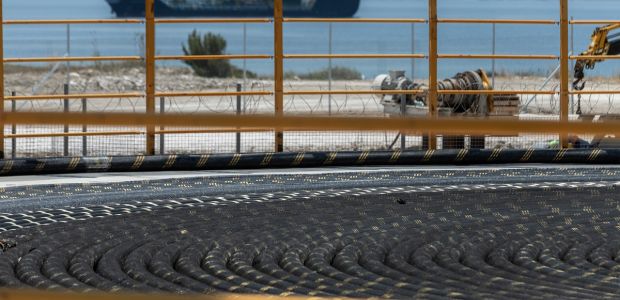Power grid operator IPTO and distribution network operator DEDDIE are locked in a dispute over the point in time at which management responsibility of Crete’s small-scale grid interconnection, to reach the Peloponnese, should be transferred from DEDDIE, currently responsible for Crete’s network as the island is classified as a non-interconnected island, to IPTO.
DEDDIE contends that IPTO must take on the responsibility of managing the island’s network with the launch of the small-scale interconnection, anticipated in March, and not in 2023, when Crete’s full-scale interconnection, all the way to Athens, is expected to begin operating.
Crete should be considered an interconnected island as soon as the small-scale grid interconnection to the Peloponnese is launched, even though this infrastructure’s capacity will be able to cover about 30 percent of the island’s energy needs, DEDDIE contends.
Normally, the grid status of islands is automatically revised from non-interconnected to interconnected when grid interconnections serving their energy needs are launched. However, Crete, Greece’s biggest and most populous island, represents a much bigger interconnection project that is being developed over two stages.
DEDDIE, backing its case, has cited an older opinion forwarded by RAE, the Regulatory Authority for Energy, to the energy ministry, through which the authority supported that Crete’s network must be considered a part of the national grid, ending its non-interconnected island status, once the small-scale interconnection begins operating.
Also citing technical reasons to support its view, DEDDIE has pointed out that IPTO will be responsible for the operation and maintenance of the small-scale grid link, infrastructure directly influencing the Cretan network’s performance. Therefore, the island’s high-voltage network and the Crete-Peloponnese interconnection must be managed by the one operator, DEDDIE contends.
IPTO does not reject the prospect of eventually becoming responsible for Crete’s network, but the power grid operator does oppose the idea of assuming responsibility for a fixed asset that does not belong to the company. Crete’s high-voltage network is owned by power utility PPC.
At present, PPC does not appear ready to sell. As a result, IPTO believes DEDDIE must be responsible for the network’s management until this asset is transferred to the power grid operator.





